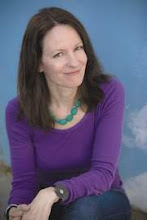By Eric Connor
STAFF WRITER
After nearly a week in limbo
[limb-o, get it?], John Wood apparently is on the way to getting his leg back.
North Carolina police said Wednesday the Simpsonville man could have back his amputated leg, which had been preserved and was stored in a barbeque smoker that was mistakenly sold in a public auction. This over the objection of the man who bought the leg and had made plans to charge admission to see it. [WTF???]
Now, the man who bought the leg, Shannon Whisnant, said he has a receipt and is prepared to go to court if he doesn't get to keep it. [Legally, I don't think he has a leg to stand on.]
"I'm considering all options at this point," Whisnant said. "You can't take a mattress full of cash from a man who bought it and has a receipt for it and give it to somebody else. I bought it."
However, police said Whisnant already gave up the leg when he called 911 and told dispatchers he was "grossed out" and wanted to get rid of it. [I swear...really...I'm not making this up.]
"He already gave it up," said Capt. Tracy Ledford of the Maiden Police Department in Maiden, N.C., where the leg was sold from a mini-warehouse last week. "Mr. Wood has made arrangements to pick it up. We're just ready for it to be over."
Wood was in Maiden, a town about 20 miles south of Hickory, N.C., on Wednesday. He could not be reached by phone. [Clearly... he was stumped.]
The dispute has made headlines globally and inundated the town with exposure that townsfolk said they weren't so glad to have.
The leg was amputated near the knee three years ago after a plane crash that killed his father, and Wood said he kept the leg so that it could be cremated with him when he dies. [He'll need it when the Rapture is upon us.]
After the plane crash, Wood said he fell on hard times and all his possessions were put into a Maiden Plaza Mini Storage building. He said he wrapped the embalmed leg in paper and put it in a small smoker. [Ashes to ashes...with a little mustard]
Whisnant bought the smoker at the mini-warehouse auction, not knowing what was inside, and took it home. At first he thought the leg was a piece of driftwood.
Whisnant said as he held the leg, something oozed from it onto his hand [Maurice's barbecue sauce perhaps], and he decided to get rid of the leg. [Good plan.]
The leg ended up in the Goodin-Drum Funeral Home in Maiden. The funeral home's owner, Greg Whisnant (no relation to Shannon), said that after police determined no foul play was involved, the home held the leg for Wood to pick up. [I guess the tag said, "Do not discard Wood Leg"?]
Greg Whisnant said when the leg became a matter of dispute, the town police came and got it and stored it in an undisclosed location. [Damn tootin']
When word got out about the leg, Shannon Whisnant said he saw how much interest people had in it and saw a chance to take advantage of the publicity. He had already charged admission to see just the smoker, $3 for adults, $1 for children. [Jeez. And that's just for a looksee at the smoker. That boy's got a future.]
Whisnant said he and Wood "talked a little bit" on Wednesday but "have not had the chance to sit down and talk like true gentlemen."
Whisnant called the leg "a hell of a conversation piece" and offered Wood split [with an axe?] custody of it. [Every other weekend and Wednesdays.] Whisnant said he planned on "writing some books and doing some movies." [Quite a LEGacy...]
Said Wood: "Whether you raise an eyebrow or not, I want to be cremated whole." [I guess he's keeping those hang nails and hair clippings and wisdom teeth...and, uh, is he...circumcised? Gathering up all these mortal leavings is a lot of work!]
 is that it doesn't look like Myrtle Beach-- there aren't that many people around. The place has been devoured by developers and in warmer months is teeming with tourists, but in the off season, you can actually glimpse sea oats and sandpipers beyond the dinosaur putt-putt. Mary Alice Monroe was a terrific keynote speaker. Her novels reflect her ardent love of the environment, especially the low country of SC...I plan to read Sweet Grass soon.
is that it doesn't look like Myrtle Beach-- there aren't that many people around. The place has been devoured by developers and in warmer months is teeming with tourists, but in the off season, you can actually glimpse sea oats and sandpipers beyond the dinosaur putt-putt. Mary Alice Monroe was a terrific keynote speaker. Her novels reflect her ardent love of the environment, especially the low country of SC...I plan to read Sweet Grass soon. Morgan's novels. "Forget the coonskin cap; he never wore one." Now that's a first line.
Morgan's novels. "Forget the coonskin cap; he never wore one." Now that's a first line.









